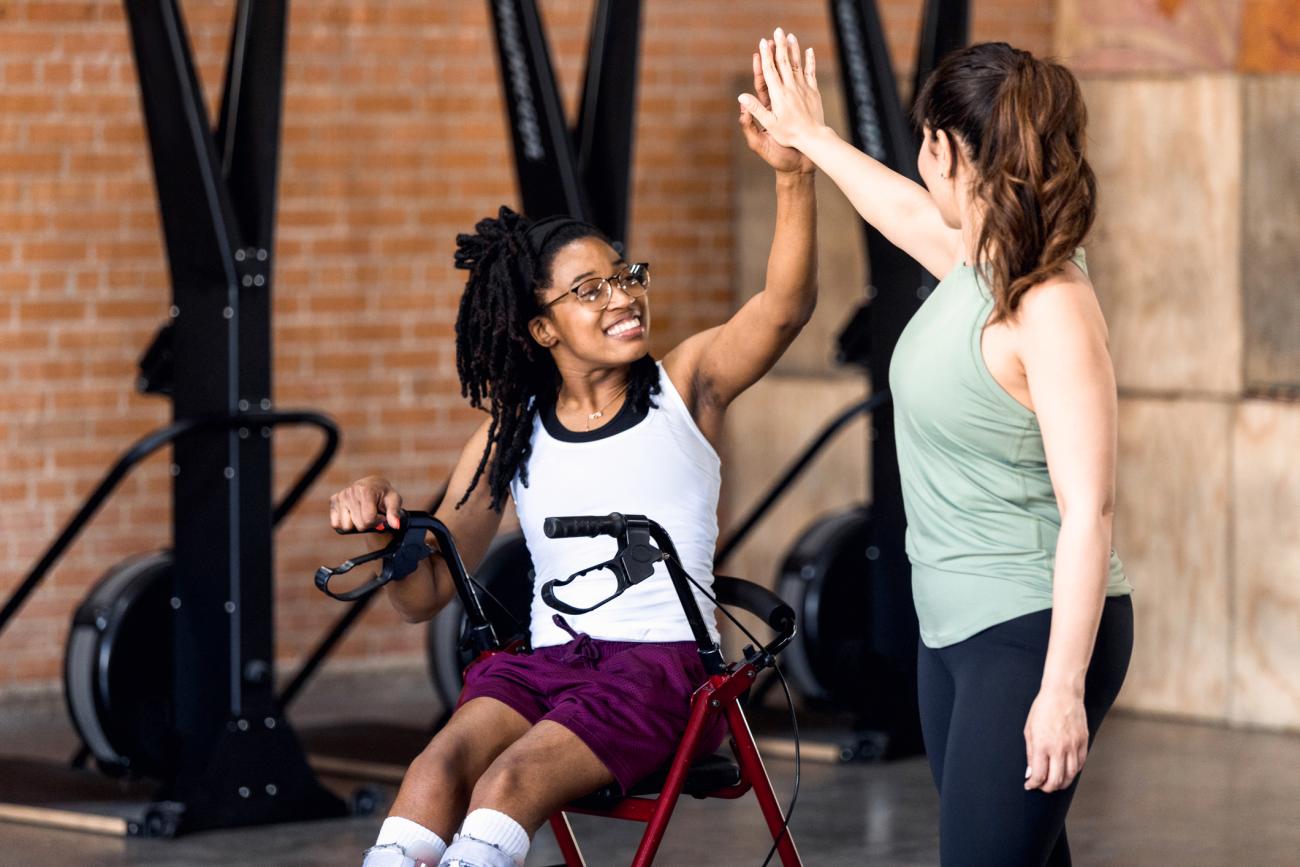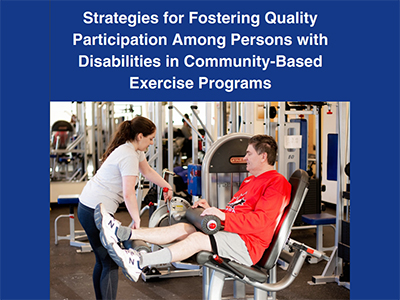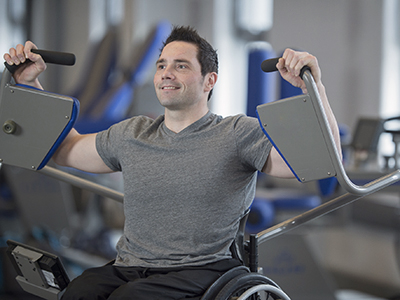
Putting in the hours at the gym or on the sports field is less of a factor in well-being than feeling a sense of belonging and mastering a skill.
In a first-of-its-kind study, Vancouver Coastal Health Research Institute researcher Dr. Kathleen Martin Ginis and her team offer concrete data revealing that the experience of participating in physical activities is a greater determinant of well-being among people with disabilities than the amount of time spent doing those activities.
“This study proved that, when thinking about the relationship between physical activity and aspects of mental health, physical activity needs to be thought of not solely in terms of the time spent on the activity, but in terms of the quality of the experience of that activity,” states Martin Ginis.
“The goal of our research was to determine whether the quality of people’s sport and exercise participation experiences explained variance in their subjective well-being above and beyond the time they spent on sport and exercise in people with disabilities.”
Martin Ginis and her team’s study — published in the journal Psychology of Sport and Exercise — forms part of a larger body of work through Martin Ginis’s SCI Action Canada Lab and the Canadian Disability Participation Project that is filling in major gaps in the field of physical activity and health disability research.
“It is imperative that we gather more data on physical activity among people with disabilities in a Canadian context.”
This data can inform science-based policies and practices in support of the approximately 27 per cent of Canadians aged 15 years and older living with one or more disabilities, adds Martin Ginis. With a growing demographic of older adults, the number of individuals with age-related disabilities may continue to expand. Already, disability rates in Canada rose by five percent between 2017 and 2022.
Evidence could transform physical activity program delivery
Martin Ginis’s groundbreaking study included 535 adults with physical disabilities from across Canada. Participants were separated into two groups and completed questionnaires.
In the group of sports participants, 271 individuals of an average of 44 years of age were asked to report the amount of time that they engaged in organized sport programs or training over the course of a week. In the group of exercisers, 264 individuals of around 57 years of age were assessed based on their weekly participation in weight training or aerobic exercise.
All participants also responded to standardized measures of their Subjective Well-Being (SWB), which were separated into: life satisfaction and emotional well-being, as well as physical, psychological and social health satisfaction.

The Measure of Experiential Aspects of Participation (MeEAP) — previously developed by Martin Ginis and colleagues — was employed to assess the quality of participants’ participation in sport or exercise activities. MeEAP evaluates participants’ experience based on six elements: autonomy, belongingness, challenge, engagement, mastery and meaning.
Martin Ginis and her team first calculated the relationship between participants’ SWB scores and their age, gender and highest level of education. When total weekly minutes spent doing either exercise or sport was factored into the equation, for the most part, time spent on activity was unrelated to participant’s SWB scores. Time was important only within the domain of physical health satisfaction, explaining 1.3 per cent of the variance for the sport participants and 2.6 per cent of the variance for the exercise participants.

However, when researchers incorporated MeEAP scores into their data analysis, the amount of variance explained in the SWB outcomes increased by between five to 21 per cent for both sport and exercise participants. Participants’ perceptions of the quality of their sport or exercise experiences explained significant variance in all of the measures of SWB.
Looking at the specific participation elements measured by the MeEAP, participants who rated their sport and exercise experiences higher in terms of feelings of belongingness and mastery also rated themselves higher in SWB domains. Belongingness here refers to experiencing a sense of belonging to a group and acceptance or respect from others. Mastery refers to experiencing self-efficacy or a sense of achievement, competence or accomplishment “that can build on our sense of autonomy, which can help people feel more confident and able,” says Martin Ginis.
“Feeling supported and accepted by our peers helps us feel good about ourselves and our lives, which translates into emotional well-being.”
“I have heard too many stories of people with disabilities being turned away from gyms that cannot accommodate them, or whose adaptive equipment, such as a special arm crank used to propel a wheelchair during a spin class, is set up in the corner of the room, away from other class participants,” states Martin Ginis.

In subsequent research, Martin Ginis plans to take a closer look at how in-the-moment physical activity experiences may impact the mental and physical health of people with disabilities over time.
“There is a need for health researchers to include people with disabilities in their studies,” Martin Ginis says. “This work is one way to contribute to a growing and much-needed body of research.”


